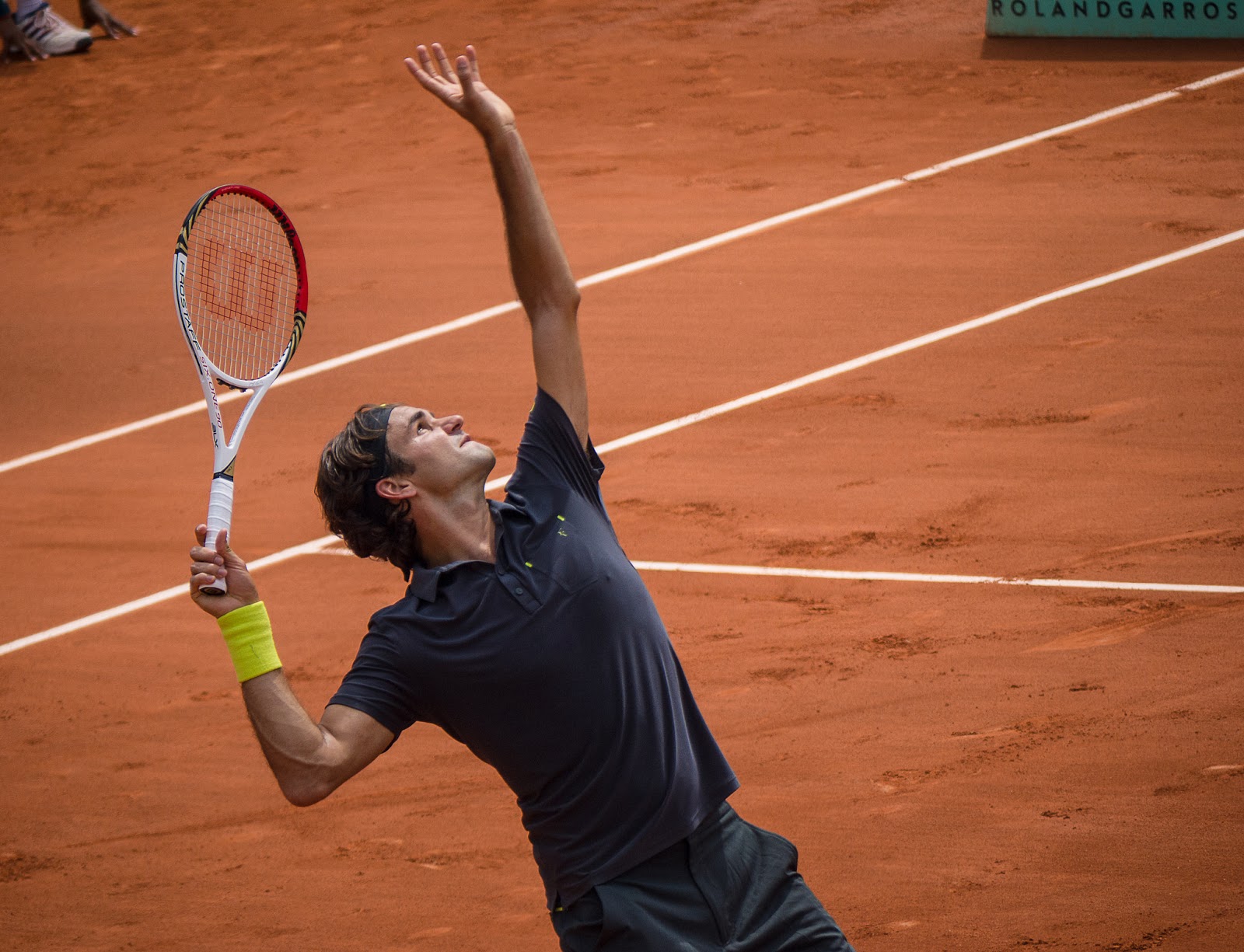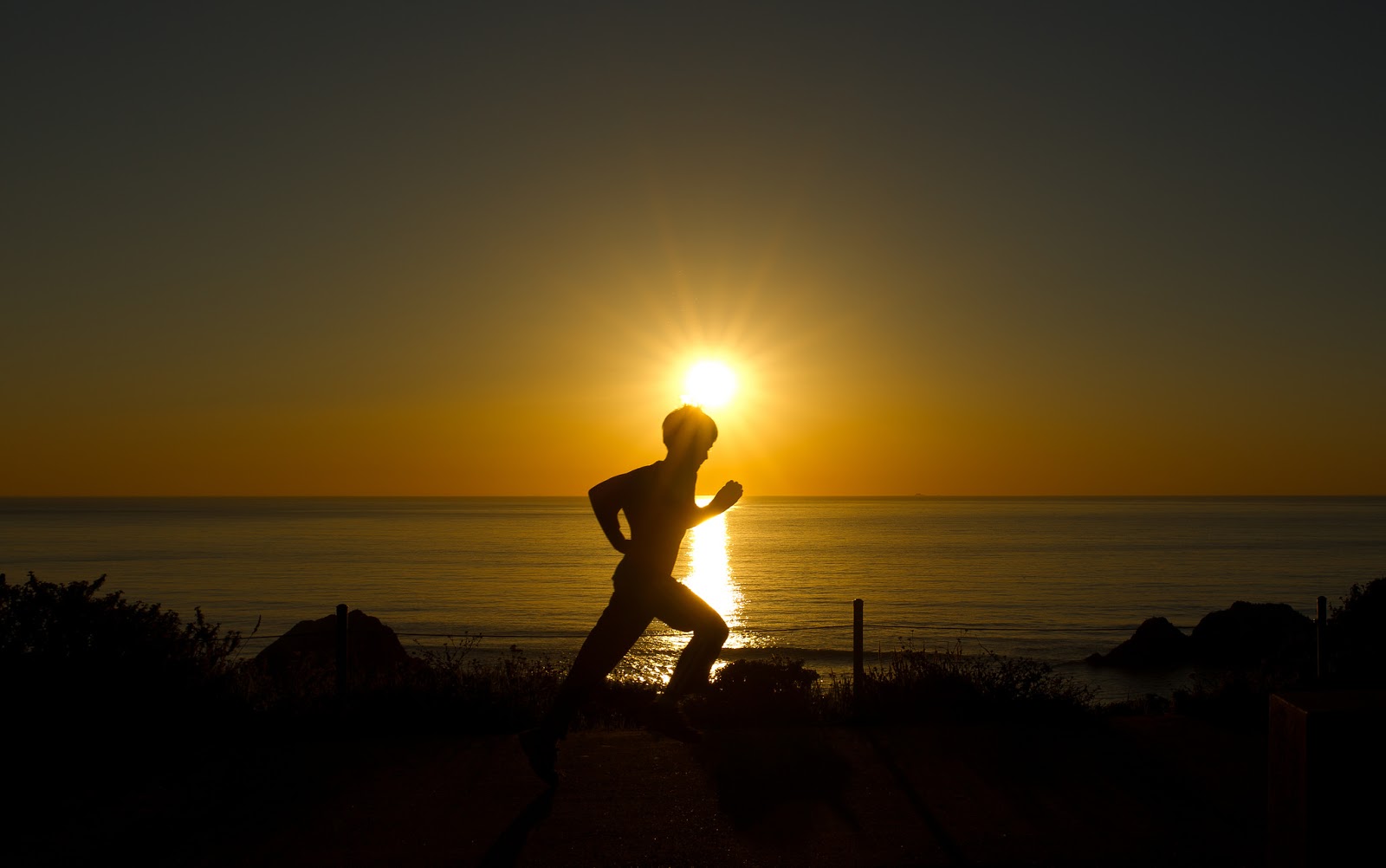What You And Roger Federer Have In Common
True greatness comes from within. It stands independent of outside forces and
quietly, persistently outlasts them all.
The person who is truly great doesn't have to be the same as other
people because their prowess stems from the inside, not from reactions to the
scrutinizing eye of the masses.
Roger Federer is perhaps the greatest tennis player
who has ever lived. At 36, well past the
prime of most players, he is one of two serious contenders for the designation
of highest-ranked player in the world by the end of the year. Throughout his whole career he has been the
epitome of consistent excellence, winning almost 82% of his professional
matches as of 2015. To put that in perspective, that is like the NBA Golden State Warriors repeating their 67-15
2016-2017 record (tied for the second best record in franchise history) -- for 19
straight years. Without adding younger
players to their roster between seasons.
To most people Federer represents well what we
consider greatness. But greatness is not
limited to a few select individuals who somehow find what it takes to set bars
no one else can reach.
In the words of Rocky Balboa:
Life is not about how hard you can hit, but how much
you can get hit and still keep moving forward.
As Roger ages, the challenge of competing at a high
level gains a deeply personal flavor. He
is slower and weaker than he used to be.
He gets injured more easily. He
has limitations that younger players do not. Yet he still believes that he can be
successful and continues forward in a record-breaking way despite the hits that
he is taking to body and spirit.
We can do the same.
That seems reasonable enough until we think about some
of the other ways we can get hit in life that don't involve high-velocity
tennis balls.
What if the hit we take is to our ego?
What if we get knocked upside the head by our own
weakness?
What if our biggest obstacle lives inside us?
I once knew a man who signed up for a difficult long-term
commitment. Only few days in, he began
to struggle with the restrictions associated with his new obligation. At moments, he seemed to be on the very verge
of giving up entirely. There were people
supporting him, but there was a limit to what they could do.
Then, slowly, he began to change. His attitude toward his commitment shifted
from deep conflict to acceptance. He
began to own his circumstances and accept the difficult restrictions that were
part of his new life.
Just as he was getting comfortable with his
situation, something completely unexpected happened: The man began having serious medical problems
that ultimately prevented him from continuing to fulfill his commitment.
In the eyes of many people, this story might not
seem to be about true greatness, especially when compared to the tennis
champion of all champions. After all, my
friend failed to achieve what he had set out to do. But on a deeper level he was great because he
conquered himself. When he finally did leave his assignment, it was kicking and screaming, fighting as hard as he could to be able to
continue to carry out the very commitment that had once pushed him to the edge of
capitulation.
This man wasn't great because he was trying to stand
on some kind of pedestal for everyone else to follow. It was because he struggled through great
personal weakness, something that was hard for him that many other people had passed
through much more easily. He got hit
square in the face with his own insecurity but kept moving forward.
Roger Federer doesn't give up when he's taken to
five sets in the first round of the U.S. Open by an unseeded teenager. And neither did my friend. They took their hits, even ones that may not
have been a challenge for anyone else around them, and still kept on marching.
There are a lot of people in this world who are
great in the same way as my friend but don't know it. Some people think less of themselves because
their outward benchmarks don't seem to measure up to those of the sports stars
of the day. Some think that what gives
them trouble isn't grandiose enough to be worthy of a grandstand full of applause in the middle of a tennis court in Flushing Meadows.
Yet the most core element of their heroic decisions
to continue is shared by one of the best athletes ever to live.
We can help the people who feel inadequate see the
greatness that is already within them. We can be the same kind of great. We can
push through our own personal challenges and not let them destroy our resolve
to continue. Then, like my friend, we
will be able to wade through the maelstrom of punches that is life and see
clearly enough to keep moving forward, no matter what comes.
Then we will be able to honestly say that we are as
great as Roger Federer without laughing out loud at the thought.
Isn't that amazing?
If you would like to stay updated on my posts, you can subscribe and/or like The Modest Miracle's Facebook page.
If you would like to stay updated on my posts, you can subscribe and/or like The Modest Miracle's Facebook page.
Photo attribution: Yann Caradec, "Roger Federer" https://creativecommons.org/licenses/by-sa/2.0/legalcode







Comments
Post a Comment